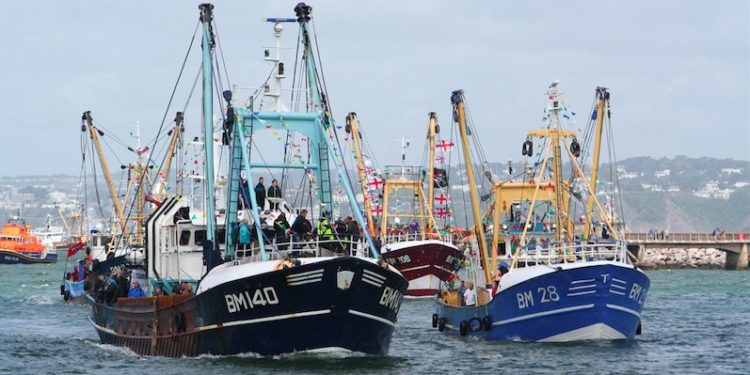The UK’s two main representative organisations for commercial fishermen – the Scottish Fishermen’s Federation (SFF) and the National Federation of Fishermen’s Organisations (NFFO) – have agreed upon common principles to ensure the best possible deal for coastal communities in the forthcoming Brexit negotiations.
The two federations met in Edinburgh last week to agreed the key outcomes they want to achieve from negotiations to leave the EU.
At the meeting between the two federations, it was agreed that they would seek fairer shares of catching opportunity for UK vessels, full control over access to the UK EEZ by fishing fleets, the creation of a fit-for-purpose management and regulation system, including a grass roots revision of fisheries management based on sustainable harvesting and sound science, and the establishment of mutually beneficial trading relationships with the EU and other countries as the outcomes they want from the UK’s exit from the European Union.
The federations agreed that there must be no roll-over of the current Common Fisheries Policy (CFP) and that negotiations regarding fisheries should not be entangled with non-fisheries issues.
‘We see the UK’s departure from the EU and therefore the CFP as an opportunity to address the distortions that were built into the CFP from its inception. The UK industry is united that this is a once in a generation opportunity to put things right,’ said Barrie Deas, chief executive of the NFFO, which represents a broad section of fishermen across England, Northern Ireland and Wales.
The federations insist that negotiations must benefit all sectors of the fishing industry, stating that inshore and offshore fleets, fish and shellfish all stand to benefit from the opportunities that the UK’s exit from the EU provides.
In particular, the federations believe this is an opportunity to go beyond the limited achievements of the CFP to develop an ambitious management strategy for UK waters that will provide environmentally sustainable, high-yield and profitable fisheries for the future. In particular there is a need to devise and implement a workable discards policy.
‘Brexit has monumental significance for the nation’s fishing industry and our coastal communities in terms of providing the opportunity for a significant increase in economic activity,’ commented Bertie Armstrong, chief executive of the SFF.
‘It is vital that fishermen across the UK speak with a united voice to ensure that the UK and devolved governments fight for the interests of these communities in the forthcoming negotiations. The UK fishing industry is speaking with one voice – it is a sea of opportunity that must not be traded away.’









